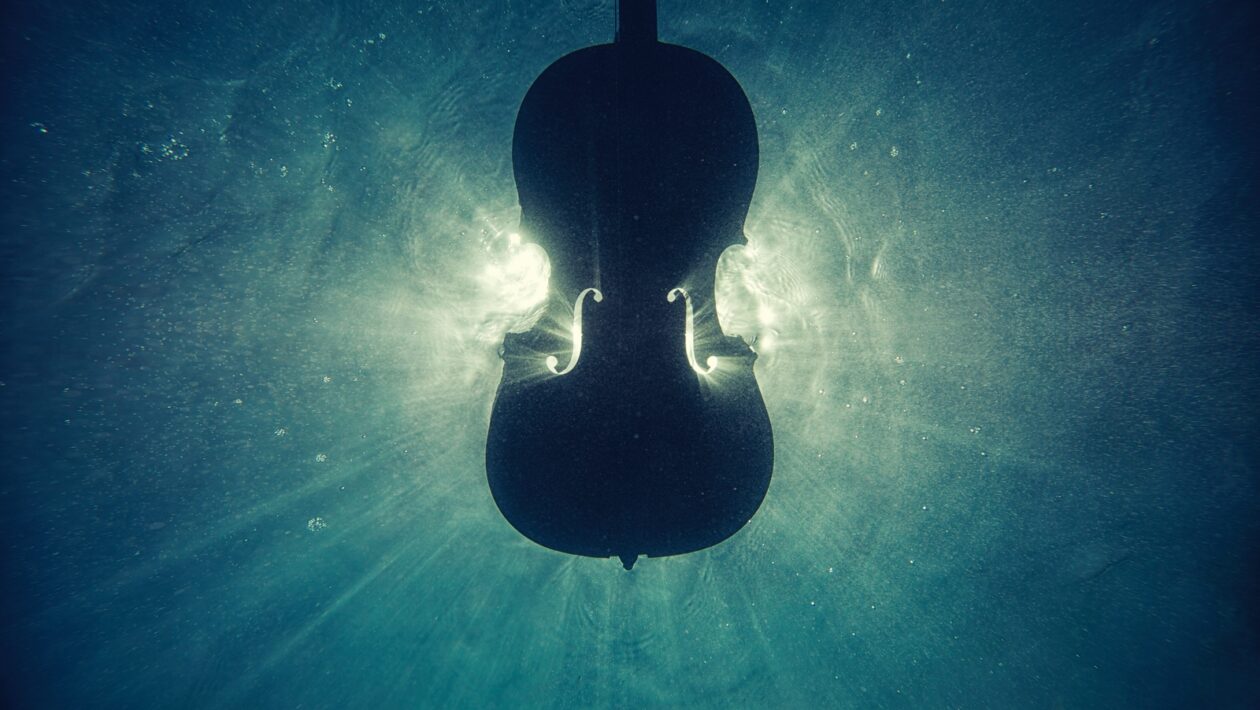(CM140: 30 cues) In Act V (‘The Belmont Act’) Shakespeare’s philosophy on the power of music is expounded (cf W7), an Act ‘drenched in moonlight and music’ much of which is performed to the sound of music (Rowse 117-8). Maurice Charney All of Shakespeare, New York, Columbia UP, 1993, pp.46-7 comments on the Orpheus legend as described in The Metamorphoses of Ovid. Stevens suggests the use of cornetti rather than trumpets for the various entries of Portia’s suitors (SM30).
| act |
scene |
line |
|
Click here to find out more about suggested song |
| I |
i |
51-53 |
[Nature hath framed strange fellows in her time; Some that will evermore peep through their eyes And laugh like parrots at a *bagpiper] |
|
| II |
i |
0; 46 |
{Flourish of cornetts]; {Cornetts, and exeunt} (B267) Morocco’s signal distinguished from that of Aragon in sc. ix |
|
|
ii |
117-8; 142 |
[…the rich Jew’s man…a rich Jew’s service] DO330-4 allusions to which Ross Duffin connects a ballad ‘The rich Jew’ (‘The cruelty of Gernutus, a Jew’) which he sets to the tune of ‘The Jew’s Dance’ which could perhaps act as Shylock’s signature tune (see 166c above) |
167 (963) |
|
v |
16 |
[I am right loath to go] |
|
|
|
|
a) DO256-7 ‘Sing with thy mouth…loath to depart’ RAVENSCROFT round à 4 |
(28a) 168 |
|
|
|
b) DO257 DOWLAND lute piece ‘Loath to depart’ as melody with text as in a) |
(28b) |
|
|
28-36 |
[What, are there *masques? Hear you me, Jessica, Lock up my doors; and when you hear the drum, And the vile squealing of the wry-necked *fife,…Let not the sound of shallow fopp’ry enter My sober house.] (AL 80) Auden comments on Shylock’s hatred of music. |
|
|
vi |
0 |
{Enter the masquers Gratiano and Salarino} [Cornets] |
|
|
|
|
(B267): shrill piping of fife and beating of tabor |
|
|
|
|
(B267): Carman’s whistle (adaptation of Byrd’s setting) |
(60) |
|
|
67 |
(PD281) DOWLAND Farewell unkind. EL (i 10-11) LS3: 14/ Df35/ PM ii; fEF17; ۞CmD iii 14/ ۞HL 11 |
169 |
|
vii |
0; 77 |
{Flourish of cornetts} (Morocco’s signal) |
|
|
ix |
3; 78 |
{Flourish of cornetts} (Aragon’s signal) |
|
| III |
ii |
43-53 |
[Let music sound while he doth make his choice: Then if he lose he makes a swanlike end, Fading in music…He may win, And what is music then? then music is Even as the *flourish when true subjects bow To a new-crownèd monarch. Such it is As are those dulcet sounds in break of day That creep into the dreaming bridegroom’s ear And summon him to marriage.] |
|
|
|
63-72 |
{Here Music}. A song the whilst Bassanio comments on the caskets to himself |
170 |
|
|
|
Cf Seng, Peter The riddle songs in The Merchant of Venice. N&Q cciii (1958) 191-3, and Gray, Austin K. The Song in The Merchant of Venice. Modern Language Notes, xlii (1927) 458-9 |
|
|
|
|
[9]. Tell me where is fancy bred. (MH143): rather dance-like music here; W7: Bassanio the only suitor favoured with music; cf G7 xx 193; see also ME 183-5, CDw84 and WT58 |
|
|
|
(66, 72) |
{All} PA158: suggests interjections be sung by a chorus; see also CDw84 |
|
|
|
|
a) uL109: 1583 (DL220) ‘Wilhelmus van Nassau’ (tune for ‘Who hath a fancy pleased’ by Sydney) lute piece ‘Wilhelmus van Nassouwe’ LSoc C49:13; as song G70/ K76 |
|
|
|
|
b) CU15, 15a/ (B267): attrib. Robert JOHNSON ‘Tell me dearest, what is love?’ accom- panying himself on the lute LS (17 ii) 12: 26; ۞KyJ25/ ۞PaH6/ ۞WS8; tune G137 |
|
|
|
|
c) uCM141-3: anon ‘Tell mee Daphne’ or ‘Daphne and Corydon (lute PI v 13) words lost CW157; kFARNABY F280/ MB xxiv 43/ FAd8; ۞Go2:3; especially bars 1-8; same tune in ‘Go no more a-rushing’ kDV6; lute/t (BO f40r 158). [Note also his ‘Daphne’ F112, a separate work (see 191d)] |
|
|
|
|
d) uDO380-1 set to ‘Full fathom five’ melody and text; as lute song ۞DO i 55 |
(299) |
|
|
131-8 |
‘You that choose not by the view,…kiss’ (spoken) |
|
|
iv |
66-7 |
[speak between the change of man and boy With a reed voice] |
|
| IV |
i |
48-9, 53-55 |
[when the bagpipe sings i’th’nose, Cannot contain their urine…Why he cannot abide … a woollen bagpipe] |
|
|
|
220 |
[A Daniel come to judgement] DO384-91 ‘King Solomon’ |
171 (350a & c) |
| V |
i |
51-68 |
[Within the house your mistress is at hand, And bring your music forth into the air. How sweet the moonlight sleeps upon this bank! Here we will sit, and let The sounds of music Creep in our ears. Soft stillness and the night Become the touches of sweet harmony. Sit, Jessica. Look how the floor of heaven Is thick inlaid with patens of bright gold There’s not the smallest orb which thou behold’st But in his motion like an angel sings, Still choiring to the young-eyed cherubins. Such harmony is in immortal souls, But whilst the muddy vesture of decay Doth grossly close it in, we cannot hear it.] {Enter musicians}. [Come ho! and wake Diana with a hymn. With sweetest touches pierce your mistress’ ear And draw her home with music.] |
|
|
|
|
CDw80 ‘The most-famous invocations of music’s power’ SM28 In the Globe production music is required to sound during this passage; here played by 2 cornetti, recorder, sackbut and theorbo, with the brass falling away during the repeats. See also BI 254; see also Ke75 |
|
|
|
68[-110] |
The Musicians play L114: suggests a calm and lyrical piece for viol consort à 4-6 |
172 |
|
|
|
a) L117: CAMPION ‘The peaceful Western wynde’ as lute song c1613 (BL I (f10) 14) MB liv 125/ EL LS (ii 2) 6: 12/ PM i 19/ G61; ۞Bw13/ ۞HL5. 1607 as a masque, set for broken consort MB xl 32/ SA413; ۞DoH7; and as a masque song ‘Move now with measured sound’ SA3; as vocal duet SB, lute, b-v LS (ii 21) 19:2; ۞Bw23 |
|
|
|
|
b) (B268): a pavan, e.g. DOWLAND Lachrymae, or any of the seven |
(31a) |
|
|
|
c) (B268) 1588 ARBEAU pavane ‘Belle qui tiens ma vie’ |
(151c) |
|
|
69-88 |
[I am never merry when I hear sweet music./ The reason is your spirits are attentive, For do but note a wild and wanton herd, Or race of youthful and unhandled colts… If they but hear perchance a trumpet sound, Or any air of music touch their ears, You shall perceive them make a mutual stand, Their savage eyes turned to a modest gaze By the sweet power of music. Therefore the poet Did feign that Orpheus drew trees, stones, and floods, Since naught so stockish, hard, and full of rage But music for the time doth change his nature. The man that hath no music in himself, Nor is not mov’d with concord of sweet sounds, Is fit for treasons, stratagems, and Spoils. The motions of his spirit are dull as night, And his affections dark as Erebus: Let no such man be trusted.] |
|
|
|
|
۞Ge: has ‘Calen O custure me’ accompanying this speech |
(74) 173 |
|
|
88 |
[Mark the music]. SM4 perhaps change of musical mood here |
|
|
|
97-106 |
[Music, hark./ It is your music, madam, of the house./ Nothing is good, I see, without respect; Methinks it sounds much sweeter than by day./ Silence bestows that virtue on it, madam./ The crow doth sing as sweetly as the lark When neither is attended, and I think The nightingale, if she should sing by day, When every goose is cackling, would be thought No better a musician than the wren]. |
|
|
|
107; 121-2 |
[Peace ho!] {Music ceases}; {A tucket sounds} MM41 on trumpet. [Your husband is at hand, I hear his trumpet] i.e. Bassanio’s |
|
|
|
292 |
[…From the rich Jew a special deed of gift…] see II i 122-3 (147 above) |
(166) 174 |

